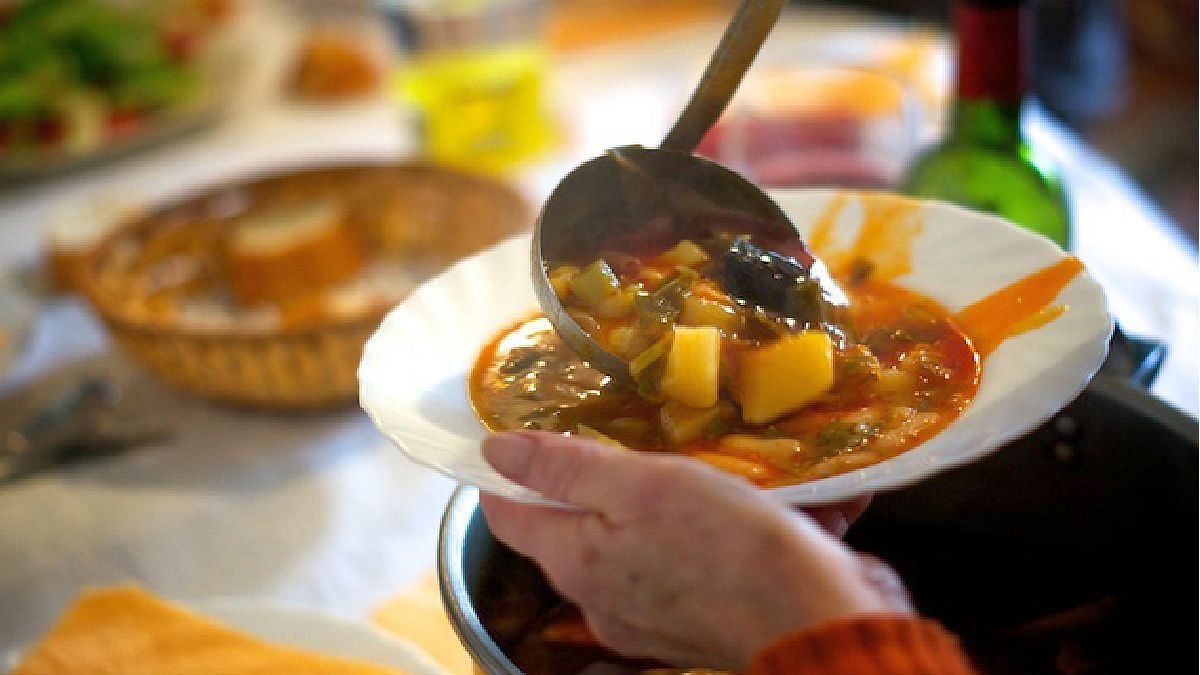In this sense, each one must position themselves according to their lifestyle and understand that, if we spend most of the day in heated environments, use public transportation or go to work by car and even perform physical activity indoors: the requirement extra for thermoregulation, does not exist.
Of course, we continue to spend energy to maintain body temperature, but the thermogenesis induced by room temperature, in this situation, does not significantly differentiate its expenditure compared to another season of the year. So we should not confuse the need for hot food, which, if we have, with caloric food.
To obtain hot food, we must modify the way of preparation: cooked vegetables, homemade soups, cakes, puddings, sautéed, always opting for healthy cooking such as baked, grilled, steamed or boiled over frying, lower the saturated fat intake (animal origin: butter, cream, whole milk and some vegetable oils such as coconut) and opt for healthy fats (monounsaturated or polyunsaturated) such as those found in nuts, avocado, salmon, olives… Even hot chocolate has its version with 70% cocoa and skim milk.
Speaking of excuses, a simple way to know if I’m using them is to ask ourselves if in winter we still consume ice cream, sushi, crumb sandwich, sugary drinks or iced drinks… hello! Then we can also continue with fruits, yogurt and salads, without making us cold.
In case the answer is “I don’t eat anything cold in winter” what we must reflect on is what I must modify and then it would be the temperature and not the caloric content of my intake.
more expensive. The rate for residential gas consumption could rise up to 110% in relation to the values that prevailed in the winter of 2017.
more expensive. The rate for residential gas consumption could rise up to 110% in relation to the values that prevailed in the winter of 2017.
As mentioned, exercising outdoors in cold weather increases energy expenditure in thermoregulation, therefore, if we need to lose a few kg of weight, we can take advantage of winter to go out and exercise (walk, run, bike, etc.) outdoors, which has great health benefits, is recreational and can be shared with the family. Obviously, if it is possible to do winter sports in the snow, the energy expenditure is higher.
It should be clarified that when I refer to losing a few extra kilos, I am talking about cases where it bothers aesthetically (although we are at a healthy weight) and I am not proposing it as the only treatment for overweight and much less for obesity, which is a disease. multifactorial and must be approached by a multidisciplinary team.
To have a healthy lifestyle, movement must be present in all seasons of the year. Then, those who do not perform physical activity, can choose to start walking at this time of year and outside the city, where the metabolic impact is greater.
In conclusion: the caloric increase in cold weather is unnecessary (except in special situations, such as athletes among others, where the recommendation is to consult a specialist)
We do need hot food, so we must modify the way it is prepared, without changing the nutritional or caloric value and taking into account that a healthy diet must be varied, include vegetables and fruits daily, with representation of the three food groups, healthy fats, sufficient water intake and lower salt intake.
Dr. Elizabeth Caron, medical nutritionist at Bionut medical center @bionut_obesidad.
Source: Ambito




